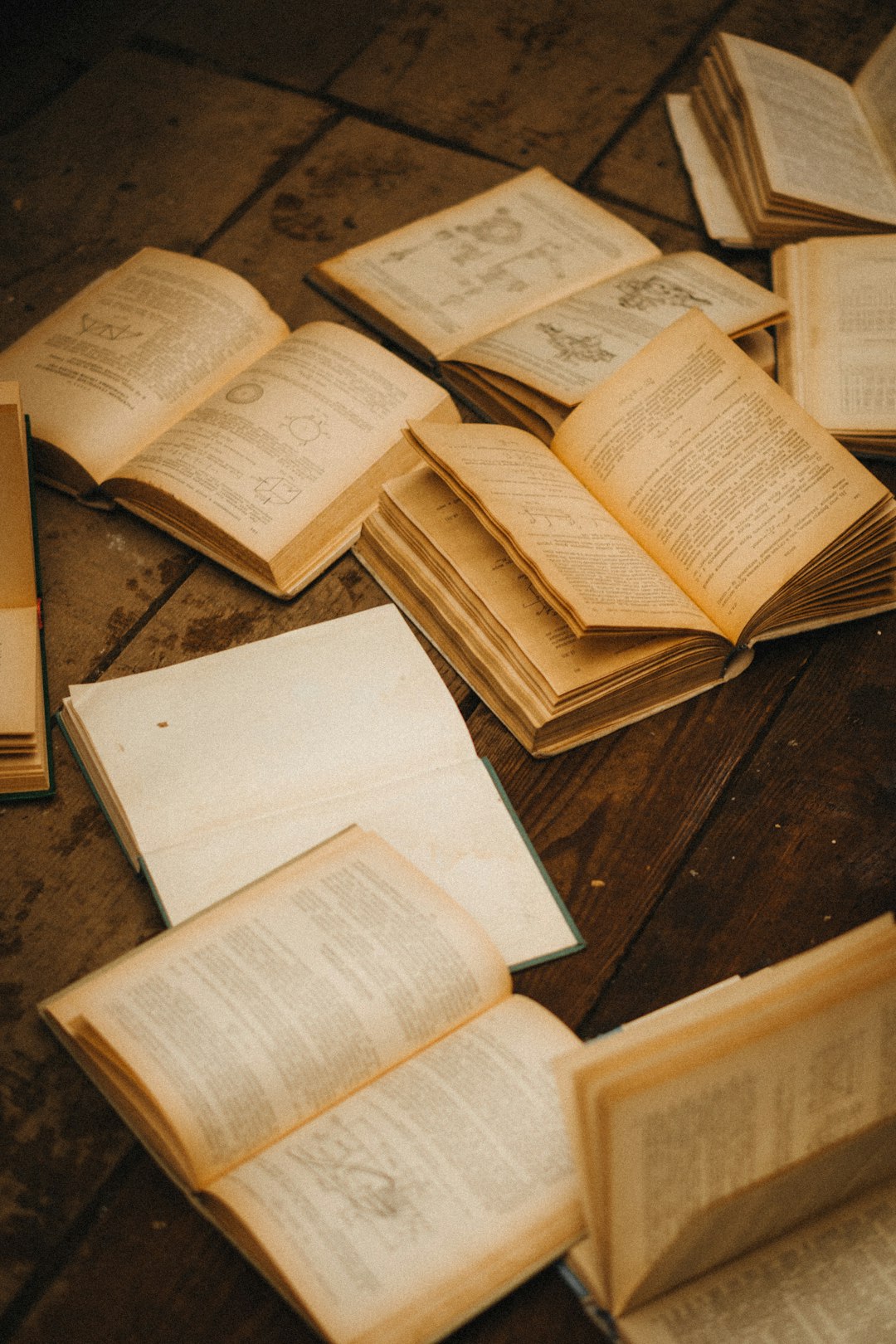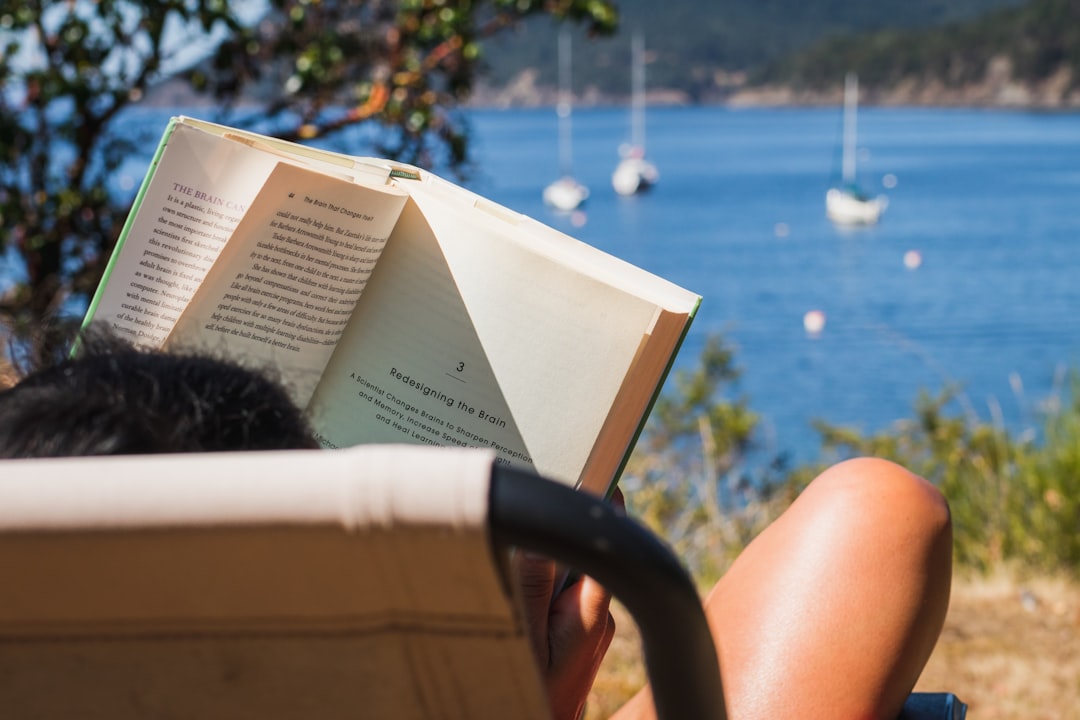Actually, Try Reading Several Books at Once
Five Reasons to Be a Promiscuous, Polygamous Reader
Several years back I attended a discussion group that hosted a philosophy professor sharing his thoughts on intellectual engagement. How do we cultivate the life of the mind? At this remove the only part of his answer I recall is the bit that stuck in my craw.
“Read one book at a time,” he advised.
This was a very serious and thoughtful man with a considered opinion, and I don’t want to come off as dismissive. But my response at the time was as immediate and irrepressible as a gag reflex: Rubbish.

In the years since, my mind hasn’t changed a skosh on that point. People are free to do whatever they want, and everyone has different needs and preferences, but I’d recommend reading several books at once—at least two or three.
The professor’s argument for reading one book at a time involved focus and immersion. Bouncing back and forth between many books, he said, would fracture our attention to the degree we couldn’t amply concentrate on the narrative or argument. Real understanding required recruiting all our mental faculties with immersive, dedicated focus.
Maybe. I’ve certainly benefited from sustained attention on a single book, reading for long stretches straight through. But more often I’ve benefited from moving between many books as mood and need dictate. Baylor professor Alan Jacobs suggests reading by whim. That goes for more than what books we read; it also applies to what bits we read of what and when.
I usually have at least four books going at any one time. Right now, I’ve got six: four on science and epistemology, including Jonathan Rauch’s The Constitution of Knowledge and Nicholas Spencer’s Magisteria; a novel, Sigrid Undset’s Kristin Lavransdatter; and something purely for fun, Nick de Semlyen‘s The Last Action Heroes. Plus, I’ve been reading snatches of Montaigne’s Essays for a research project, along with a few books on the history of printing.
Here’s a shorthand way of thinking about it: I’ve usually got one or two nonfiction books going simultaneously on whatever topics interest me, a novel, and one or two books for work or another project. And I don’t know that I’d have it any other way. The only reason I focus solely on one book is if (a) I need to read it fast or (b) I can’t help myself—it’s just too compelling to switch to another.
So that’s how I read. But what do I gain from the approach? What are the gains?

I can identify at least five reasons it’s worth reading several books at once. I’d be interested in knowing if you have others.
Heightened engagement. One way to think about books? They’re asynchronous conversations. One-on-one exchanges can be deeply rewarding, of course. But the same can be said for multiparty conversations; more voices at the table present a wider range of perspectives and ideas. Those varying perspectives sometimes highlight insights I would have otherwise missed. I’ve had times, for instance, when bouncing back and forth between a nonfiction exploration of a topic and a totally unrelated memoir—suddenly, I notice a passage in one illumines the other. The accidental mutuality of the two books enhances my understanding.
Cross-fertilization. Innovation comes from the novel combination of elements, new and old. While innovation is obviously possible by combing knowledge already stored away in my mind with new insights from reading a single book, I find the process more energizing and generative when I’m bringing multiple books to the party. This is an extension of Point 1 above. The accidental combination of two separate trains of thought suddenly makes possible a third. When novelist Cormac McCarthy says, “books are made out of books,” this is what he’s getting at.
Fuller context. As mentioned above, I’m reading several books right now on the history of printing. I have a basic understanding already: I’ve read about Gutenberg and his Asian predecessors and over the years have read several histories of the period that deal with the innovation and its impact. But when I dip in and out of a stack of books on the topic in a concentrated period of time, I can check the assumptions, emphases, and conclusions of one authority against another. And with a better comprehensive grasp of the subject, I gain more of the benefits contained in Points 1 and 2.
Variety. I thrive on variety. In simultaneously reading several books on science, for instance, it’s a joy to finish a chapter in one and jump to another. It’s also a joy to jump out and pick up a chapter of Lavransdatter or Last Action Heroes. I’m not expecting any cross-fertilization or contextual enhancement when bouncing from Copernicus to Bruce Willis, but I’m giving my mind a break and chance to think about something different for a stretch. When I read Farah Jasmine Griffin’s memoir Read Until You Understand last year, I couldn’t read it straight through. It was too much; I needed to space it out with bits of Eugene Vodolazkin’s Brisbane and Grant McCracken’s Return of the Artisan. And you never know: Sometimes it’s the random intersection of radically dissimilar books that leads to the most fruitful cross-fertilization.
Enjoyment. I used the word joy to describe bouncing between books, and it’s worth landing here as a key reason for promiscuous reading. We read for many reasons, but if joy is not a major part of our rationale we might as well stream Netflix. I love reading and my interests range far and wide. Reading many books at once allows me to engage with a books as I want, when I want, ensuring I get the most from the experience.
As I mentioned, everyone’s different and possesses diverse needs and preferences. Mileage may vary, as they say. But to me the choice is similar to the decision to abandon a book that fails to maintain our interest. Some people feel duty-bound to finish any book they start. Why? Do we serve the book or does the book serve us?
The answer bears directly on the question of multiple books. If books serve us, there’s no reason we can’t move between them as our needs and interest lead. And there are many benefits when we do.
Do you read multiple books at once? If so, I’d love to hear your reasons for doing so. If not, I’d love to hear that too. Leave a comment below.
Thanks for reading! If you enjoyed this post, please hit the ❤️ below and share it with your friends.
Not a subscriber? Take a moment and sign up. It’s free for now, and I’ll send you my top-fifteen quotes about books and reading. Thanks again!
Related posts:





I used to be a firm believer in one book at a time, but as I got older I came to see the benefits of a varied reading diet. Right now I have 3 going: a new read, a reread, and a religious text. It’s saved me a lot of anxiety about picking the “next book” because I don’t feel bad about rereading an on book when I have so many unread ones, or reading a fiction book when I “should” be reading a theological text.
I always have multiple books going on simultaneously too. Curse of a curious mind I suppose. Current reads: a popular novel for our book club, books on cultural upheaval to understand our time, spiritual reading to ground me, a middle grade graphic novel, and we're listening to Kidnapped in the car.
I am grateful for my liberal arts education. I'm studying Latin for the first time at 58. My high school daughter thinks I'm crazy and my husband is used to it. I just read Kristin Lavransdatter earlier this year. I hope you write about it!
Here's to living bookish lives that transform us.